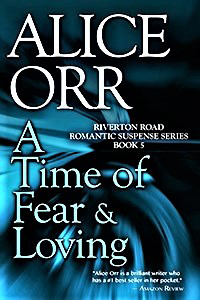Tell strong stories. That's what every writer longs to do.
What are strong stories anyway? To conquer an audience and make it your own you must tell a story
that moves them. A story that moves them emotionally. Emotional Power is the
impact your story must have.
Tell Strong Stories – How to Create the Most Important Person in Your Plot
The key to an
emotionally moving storytelling is Character.
The success of your story hangs on the strength of the main
character you create and the way you employ that character as a storyteller.
Your main character must move your story forward emotionally.
Why is your main
character so important?
Because your protagonist's story is what connects you with
the reader. You draw the reader in and make her care. That's how you hook a
reader. Mastering the art of the story hook is essential to writing a
successful novel. You set that hook by creating a story in which the reader
cannot help but become emotionally involved.
Which means that the
reader must care about what happens to your character.
The reader must begin to behave as if the Protagonist of
your story were a real-life person they know personally. Your character's
defeats are the reader's defeats. Your character's triumphs are the reader's
triumphs. When you make your readers feel this connection you have them hooked.
And they will stay hooked from beginning to end.
For example, I was hooked by both Rick and Ilsa in the film
Casablanca (the example I've been loving to use in these columns) and wanted
both of them to triumph. The conclusion turned out to be more complicated than
that. Which hooked me deeper still. Those screenwriters knew how to Tell Strong
Stories.
Here's how to begin
creating characters as real as Rick and Ilsa.
#1. First the
character must hook you. You as author must be as emotionally involved with
your character as you want the reader to be.
#2. Which
requires that you as author must know your character intimately. You must know
your characters – especially your main character heroine or hero – from the
Inside Out. Which means you must understand as deeply as you possibly can what
it's like to be your protagonist.
Why do you need to
know so much about your protagonist?
In practical terms you must know enough to keep your readers
reading. You need to know a lot about a character to make her sufficiently
complex to carry the weight of your story from the beginning to the end of a
book.
You must know enough about this character to bring him to
life on the page and make the reader care about him. For example, Charles Dickens
brought Ebenezer Scrooge to life on the page in A Christmas Carol, and made us
care what happened to him as well. Dickens knew Scrooge from the Inside Out.
Here's an exercise
for getting to know your character from the Inside Out.
Project yourself into your main character. Become your main
character in your imagination. Then ask yourself the following five questions
about that character.
#1. What does my main
character want in this story?
Is this desire significant enough to make a reader also want
this thing for my character? Is this desire significant enough to make a reader
want it for my character all the way through the length of an entire book? Or
at some point does this desire pale into "Who cares?" territory for
the reader?
#2. How much does my
main character want this thing?
Is this the most crucial need my character has ever
experienced? Have I effectively communicated my character's sense of urgency?
How in specific scenes, action and dialogue can I turn up the story heat on the
intensity of my main character's desire?
#3. Why does my main
character want this thing?
Are her reasons – her motivations – admirable? Are these
motivations logical in this story situation? Are her motivations believable to
the extent that a reader will accept them as legitimate enough to motivate an
intelligent, independent, principled protagonist throughout the entire length
of my story? Will a reader not only believe these motives but also adopt them
on behalf of my character and root for her to achieve her desires?
#4. What does my main
character not want?
Is my character running away from something? If so what is
it and why is he on the run from it? Is my character avoiding something? If so
what is he avoiding and why? What is my character afraid of? Why is my
character afraid of this thing?
[Here's a secret to
upping your story's ante in terms of drama, intensity and power.
Make sure every character fears something. Especially your
main character. For example, what does Scarlett O'Hara fear in Margaret
Mitchell's Gone with the Wind?]
#5. What's at stake
for my main character in this story situation?
What will happen if she fails to achieve what she wants or
needs? Are those consequences dreadful enough to make a reader dread them as
well? Who in my story besides my main character could also be adversely
affected? How in specific scenes, action and dialogue can I intensify these
stakes by making the potential consequences more devastating, pervasive and
far-reaching?
Brainstorm every
possible response to each of these questions.
Always push yourself beyond the first, most obvious
possibility toward less expected, more original ones. The farther reaches of
our imaginations are the place from which we Tell Strong Stories.
Alice Orr – adapted from my blog at http://www.aliceorrbooks.com.
ALICE ORR is the author of 16 novels, 3 novellas, a memoir and No More Rejections: 50 Secrets to Writing a Manuscript that Sells. A former book editor and literary agent, Alice now lives her dream as a full-time writer. Her latest novel is A Time of Fear and Loving: Riverton Road Romantic Suspense - Book 5. Alice has two grown children and two perfect grandchildren and resides with her husband Jonathan in New York City.
Author Website: www.aliceorrbooks.com
Author Blog: www.aliceorrbooks.com
Facebook: https://www.facebook.com/aliceorrwriter
Twitter: https://twitter.com/aliceorrbooks
Amazon Author Page: https://www.amazon.com/Alice-Orr/e/B000APC22E
















